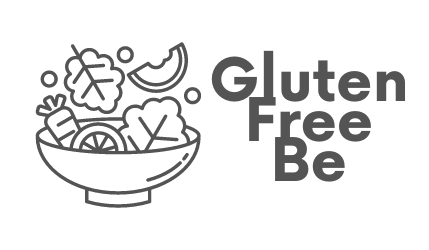Living with an autoimmune condition is no easy feat, and for individuals with conditions such as celiac disease, gluten sensitivity, or other gluten-related disorders, following a strict gluten-free lifestyle is essential. Adopting a gluten-free diet can be challenging, but with the right knowledge, support, and some helpful tips and tricks, navigating this lifestyle becomes more manageable. In this blog post, we will explore some valuable strategies to help autoimmune patients successfully embrace the gluten-free lifestyle.
Understanding Gluten and Autoimmune Conditions
Gluten is a protein found in wheat, barley, rye, and related grains. For individuals with autoimmune conditions like celiac disease, the immune system reacts negatively to gluten, causing damage to the small intestine and triggering various symptoms. Even those without celiac disease may experience gluten sensitivity, which can lead to digestive problems, fatigue, brain fog, and other unpleasant symptoms.
Tips and Tricks for a Gluten-Free Lifestyle
1.Education is Key:
Educating yourself about gluten and its sources is the first step towards successfully navigating the gluten-free lifestyle. Understand which grains contain gluten and learn to read food labels carefully. Familiarize yourself with the terms that may indicate hidden gluten, such as “wheat-free” versus “gluten-free,” and be aware of cross-contamination risks.
2. Seek Professional Guidance:
Consult a registered dietitian or a healthcare professional specializing in celiac disease or gluten-related disorders. They can provide personalized guidance, help you create a meal plan, and offer strategies to ensure you meet your nutritional needs while avoiding gluten.

3. Embrace Whole Foods:
Opt for a diet centered around whole, unprocessed foods such as fruits, vegetables, lean meats, fish, legumes, and naturally gluten-free grains like rice, quinoa, and corn. These options are safe and offer a wide range of nutrients. Avoiding processed foods reduces the risk of hidden gluten and minimizes exposure to potential contaminants.
4. Build a Support Network:
Connect with local or online support groups and communities of individuals who share similar dietary needs. They can offer valuable advice, share recipes, and provide emotional support during challenging times. Having a support network can make the gluten-free journey less isolating and more empowering.
5. Experiment with Gluten-Free Substitutes:
Nowadays, there is a plethora of gluten-free alternatives available in grocery stores. Experiment with different brands and products to find substitutes that suit your taste and preferences. From gluten-free bread, pasta, and flour to baked goods and snacks, the market offers a wide range of options to satisfy cravings without compromising your health.
6. Plan and Prepare Meals in Advance:
Meal planning and preparation can significantly simplify the gluten-free lifestyle. Dedicate some time each week to plan your meals, make a grocery list, and prepare meals in advance whenever possible. This practice will help you stay organized, save time, and avoid impulsive food choices that may contain gluten.
7. Be Mindful of Cross-Contamination:
Cross-contamination can occur when gluten-free foods come into contact with gluten-containing items. Use separate utensils, cutting boards, and cookware to avoid cross-contamination during food preparation. When dining out, communicate your dietary needs to the restaurant staff and ask about their gluten-free options and preparation methods.
8. Traveling Gluten-Free:
Traveling can present unique challenges for individuals following a gluten-free diet. Research restaurants or destinations with gluten-free options in advance. Pack gluten-free snacks for emergencies, and consider carrying a translation card in the local language, explaining your dietary restrictions, to help communicate your needs effectively.
Transitioning to a gluten-free lifestyle may seem daunting, but with the right information and support, it can become a manageable and rewarding journey for autoimmune patients. By understanding gluten, educating yourself, seeking professional guidance, and following these tips and tricks, you can successfully navigate the challenges and embrace a healthier, gluten-free lifestyle. Remember, you are not alone—connect with others in similar situations, stay positive, and focus on the multitude of delicious, gluten-free options available to you.



